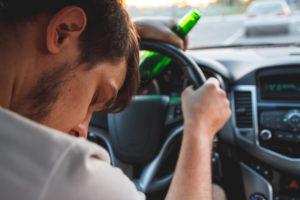
In general, the difference between DUI and DWI is that DUI stands for “driving under the influence,” while DWI generally means “driving while intoxicated” or “driving while impaired.” How each state uses these terms depends on its impaired driving laws. In some states, the terms are interchangeable. In others, they might refer to two separate charges.
In some states, DWI statutes may include drugs, while DUI charges do not. In others, one term may be used exclusively for underage offenders. Finally, some states use entirely different terminology for these charges. Other names for drunk or drugged driving offenses include:
- Operating while intoxicated (OWI)
- Operating under the influence (OUI)
- Driving while ability impaired (DWAI)
Differences in DUI and DWI Laws Across the Gulf South
In the Gulf South, each state has unique drunk and drugged driving laws.
Alabama
Alabama drivers may be convicted of DUI under Ala. Code § 32-5A-191 if they have a blood alcohol concentration (BAC) of 0.08 or more. The statute also bars driving “under the influence of a controlled substance to a degree which renders him or her incapable of safely driving.”
Arkansas
Arkansas’ drunk and drugged driving laws include DUI and DWI as separate charges under Ark. Code Ann. § 5-65. A DWI occurs when a driver has a BAC of 0.08 or over or is otherwise driving impaired. In addition, Ark. Code Ann. § 5-65-303 applies a stricter standard on drivers under the age of 21, allowing for a DUI charge if they have a BAC of between 0.02 (the legal limit for this age) or 0.08 (any higher, and they face DWI charges under Ark. Code Ann. § 5-65-103).
Louisiana
Louisiana’s intoxicated driving law (La. R.S. § 14:98) covers “operating a vehicle while intoxicated” or OWI. However, many people also call this a “DWI.” It refers to any driver with a BAC above 0.08 or who appears impaired because of alcohol or drug use. Of note, this law includes more than driving a car. It also addresses operating other types of vehicles, including:
- Motorcycle
- Motor scooter
- Aircraft
- Watercraft
- Another vessel
Mississippi
Mississippi’s intoxicated driving charge is Miss. Code Ann. § 63-11-30 and refers to a person who drove or operated a vehicle:
- With a BAC of 0.08 or higher (lower for minors and commercial drivers)
- After taking any intoxicating illegal drug or substance
- While under the influence of any mind-altering drug or intoxicant
For a free legal consultation, call 800-537-8185
Penalties for Drunk and Drugged Drivers
The penalties that an intoxicated driver might face vary from state to state and could even differ between jurisdictions within the state. Judges in these cases often have a lot of discretion to hand down sentences that include:
- Jail time
- Fines
- Driver’s license suspension
- Community service
- An alcohol and substance abuse evaluation
- Mandated substance abuse treatment
- An ignition interlock device
Drunk Drivers May Face Other Related Charges
Most states also have additional charges related to intoxicated driving. One of the most used is implied consent laws. These come into play when a driver refuses a breathalyzer, blood, or urine test following a stop and a suspected DUI or DWI. The law requires licensed drivers to submit to testing if legally stopped for these offenses. When they refuse, they will face this charge and possible penalties.
Other charges may arise after an intoxicated driver causes a crash. Many states have statutes that apply to these accidents. For example, suppose a drunk or intoxicated driver in Alabama caused an accident that led to someone dying. In that case, the driver will likely face a felony criminally negligent homicide charge under Ala. Code § 13A-6-4(c).
What If I Was a Victim of a DUI or DWI Crash?
If you suffered severe injuries in a collision caused by a driver facing DUI or DWI charges, you likely have compelling evidence to support a civil case against them. Possible civil actions include a liability claim against their car insurance policy or a personal injury lawsuit in civil court. The civil case is in addition to the criminal charges they face.
Your civil action is what allows you to recover compensation to pay medical bills, cover lost income, repair your car, and hold the at-fault driver responsible for your injuries. The deadline to sue in these cases depends on your state:
- Two years in Alabama under Ala. Code § 6-2-38
- Three years in Arkansas under Ark. Code Ann. § 16-56-105
- One year in Louisiana under La. Civ. Code Art. 3492
- Three years in Mississippi under Miss. Code Ann. § 15-1-49
Victims do not have to sue in most cases. It’s even rarer for your case to go to trial. However, you must act before this deadline to protect your right to sue if necessary.
Seek Medical Attention
After a DUI or DWI accident, make sure you see a doctor so they can assess your injuries and prescribe a treatment plan. This is vital not only for your health but also for your case for compensation. Medical evidence can help a personal injury lawyer link your injuries to another party’s negligence.
Make sure to follow through with your treatment plan, as well. You do not want to give an insurer or the defense party a reason to argue you contributed to your losses.
Click to contact our personal injury lawyers today
Get Your Morris Bart, LLC, Case Assessment for Free Today
You can learn more about your car accident case and legal options for holding the intoxicated driver legally responsible by speaking with our team today. We provide complimentary consultations for accident victims. We have 15 office locations throughout the Gulf South and serve all parts of Louisiana, Mississippi, Alabama, and Arkansas. We are a contingency fee personal injury firm.
Call today to speak with us for free.
Questions?Call 800-537-8185
to find a Morris Bart office near you.

